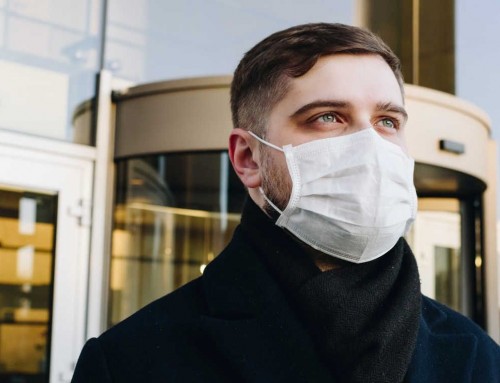After the Omicron variant was alerted as a variant of concern by the World Health Organization, stock market volatility picked up sharply as governments rushed to close the borders to South Africa and its close neighbors. While much of the focus has been on the variant's possible evasion of immunity/vaccines, there is actually a bullish case to be made as COVID evolves over time. One popular theory, endorsed by some experts, is that viruses often start off harming their hosts, but evolve toward a more benign coexistence. If this is case with Omicron, then vaccines may become less important as the virus becomes less virulent.
Shocked at the extreme response
It is still early days and we don't know if the trends will hold but so far in South Africa, doctors are seeing extremely mild symptoms from Omicron infections. This is a good news.
Dr. Angelique Coetzee, chair of the South African Medical Association, was the doctor that alerted the world to Omicron but she was shocked at the extraordinary global reaction.
On November 29th, she wrote in an op-ed for the Daily Mail that she was stunned at the response — and especially from Britain (the first country to stop flights from South Africa). She wrote, “And let me be clear: nothing I have seen about this new variant warrants the extreme action the UK government has taken in response to it. No one here is South Africa is known to have been hospitalised with the Omicron variant, nor is anyone here believed to have fallen seriously ill with it.”
The Bullish Case for Omicron
In South Africa, there is growing excitement among Coronavirus experts as the variant appears more contagious but much milder and less deadly. Some experts are therefore even urging countries to drop restrictions and let Omicron spread so it can crowd out the Delta variant which is more deadly.
Clive Dix, the former head of the British government's vaccine task force, said that he is “pretty calm and not really worried” about the new variant. “We’re not seeing serious disease yet and we’re not seeing death. The picture looks like it’s now a milder virus – and that’s what you expect with viruses. They mutate to become more transmissible – they’re not looking to be deadly, because otherwise they don’t get transmitted,” Dix explained.
Early evidence from South Africa
In a recent paper from the Tshwane District, the early evidence is showing very mild disease from Omicron even for those that are in the hospital. Here are a few of the highlights from the paper that covered hospital patients through December 4th.
- The majority of patients in the COVID wards have not been oxygen dependent – “this is a picture that has not been seen in previous waves.”
- COVID diagnosis has been an incidental finding in patients that were admitted to the hospital for another medical, surgical or obstetric reason.
- Of 38 adults in the COVID wards on December 2nd, 6 were vaccinated, 24 were unvaccinated and 8 unknown. Of 9 patients with COVID pneumonia, 8 are unvaccinated, 1 is a child.
- So far the average length of stay has been just 2.8 days vs 8.5 days for the past 18 months for COVID patients.
- Average age has skewed lower with 80% of new COVID cases below age 50. Paper speculates that it may be from lower rates of vaccination with those under 60.
It is still early days, but so far Omicron may actually have a huge silver lining. It will take time to play out but let's all hope this is an early Christmas present for the world. Fingers crossed.
Feature image from Unsplash.






